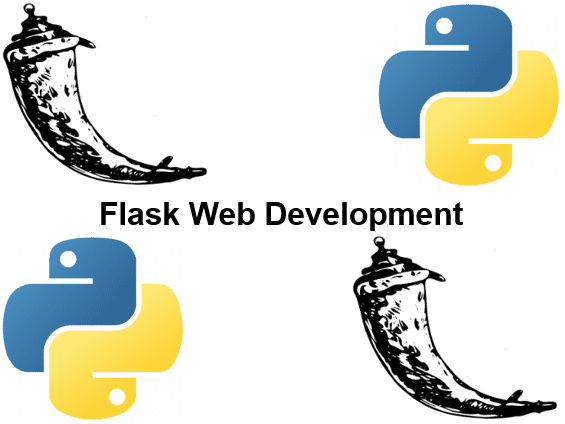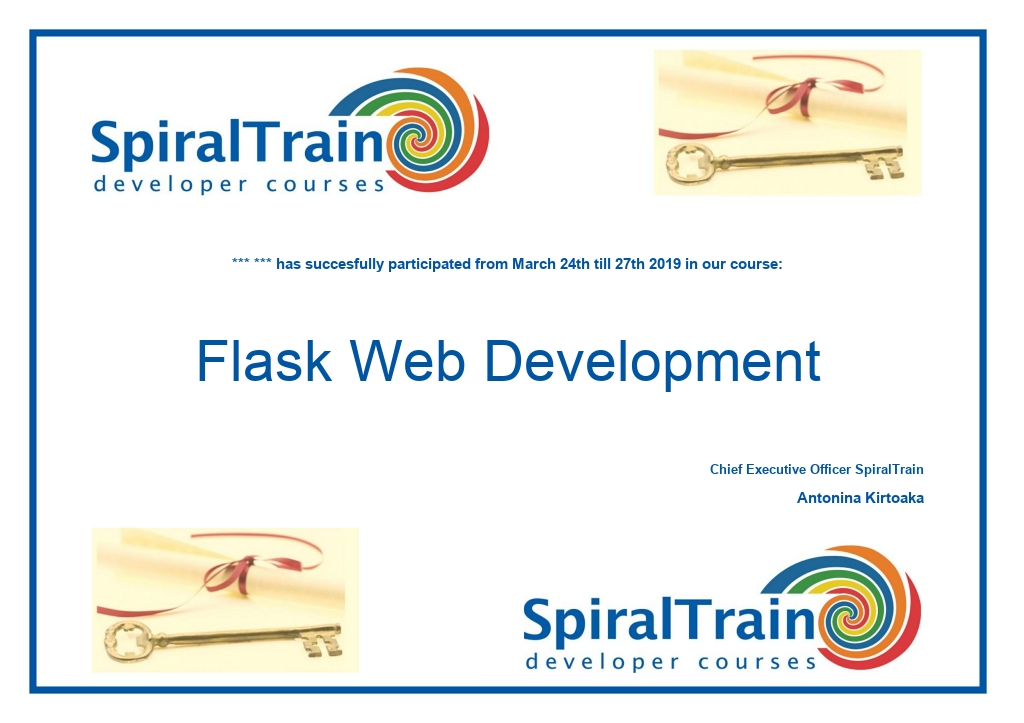-
Learning by doing
-
Trainers with practical experience
-
Classroom training
-
Detailed course material
-
Clear content description
-
Tailormade content possible
-
Training that proceeds
-
Small groups
In the course Flask Web Development participants learn to develop Python Web Applications with the Flask Framework.
The Flask Framework differs from other frameworks because developers have a great deal of freedom in the components they use and are not tied to pre-cooked standard solutions. If developers want to use their own database engine or another method to authenticate users, this can be done without problems.
Flask comes with a robust basic functionality but is designed to be expanded. Many extensions are available, but you can also use your own.
The course starts with an overview of the features of the Framework, the initialization and the application structure.
Next Flask templates with variables and control structures are discussed. Web Forms with View functions, Form rendering and Form Validation are also part of the course program.
An overview is given of the possible database connections from a Flask application and attention is paid to both SQL and NoSQL databases. The implementation of Rest Services with Flask with the Flask Restless extension is also considered and Restfull APIs for database models in for example SQLAlchemy are generated.
Finally the testing of Flask applications and a number of popular Flask extensions are discussed.
The Course Flask Web Development is intended for developers who want to learn how to create Python Web Applications with the Flask Framework.
To participate in this course prior knowledge of and experience with programming in Python is required.
The theory is treated on the basis of presentations. Illustrative demos are used to clarify the concepts discussed. There is ample opportunity to practice and theory and practice are interchanged. The course times are from 9.30 am to 16.30 pm.
After successful completion of the course participants receive an official certificate Flask Web Development.

Module 1 : Flask Intro |
Module 2 : Templates |
Module 3 : Web Forms |
|
What is Flask? Flask Features Virtual Environment Serving HTML Initialization Application Structure Debug Mode Routes and View Functions Request Context Request Dispatching Request Hooks Responses |
Rendering Templates Jinja2 Templates Variables Variable Rules Control Structures Templates in Files Templates Inheritance Filters and Links Custom Error Pages Static Files Localization Flask Moment |
Form Classes Form Handling View Functions Form Rendering Security with CSRF Redirects Sessions Validation Flask WTF WTF Forms Flask Cookies Message Flashing |
Module 4 : Data Access |
Module 5 : Rest Services |
Module 6 : Testing |
|
SQL of NoSQL SQLAlchemy and MongoDB Model Definitions Relationships Database Operations Create and Insert Modify and Delete Querying Rows Shell Integration Database Migrations Flask Migrate |
Resources and Id's URL Patterns Request Methods Request Bodies Response Bodies Pattern Parameters Flask Restless Versioning Content Negotiation Token Based Authentication Serializing Resources |
Unit Testing Assertions Behavior Testing Flask Testing Life Server Exceptions JSON Handle Code Coverage Profiling Flask Test Client Testing Web Services |
Module 7 : Extensions |
||
|
Authentication Flask-HTTPAuth Flask Principal Flask Login Flask-OpenID Flask-OAuth Flask-Admin Flask-Babel Flask-Bcrypt Flask Mail Flask Sijax |
